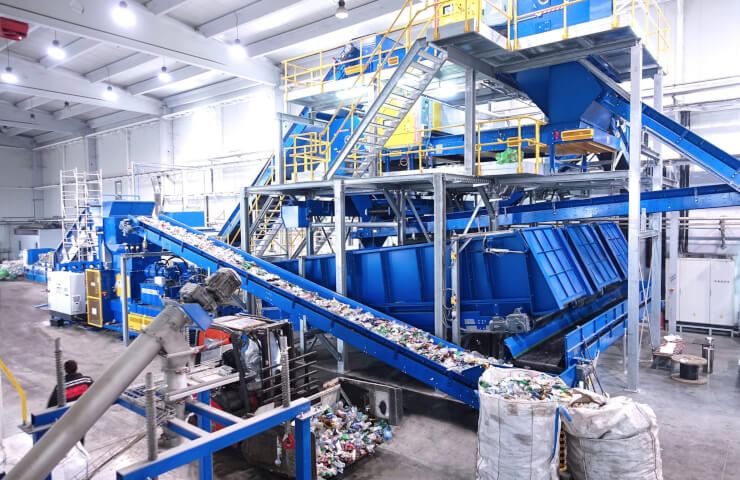Recycling of industrial waste is one of the most pressing environmental challenges of our time. This is due to growing production volumes and, as a consequence, an increase in the amount of waste that requires processing and disposal. In Russia and around the world, industrial waste represents a complex problem that requires innovative solutions and technologies for its processing and recycling.
Current situation in the field of industrial waste treatment
In Russia, the majority of industrial waste waste is traditionally buried in landfills or stored in unequipped places, which leads to contamination of soil, water resources and the atmosphere. According to Rosstat, in recent years, waste production in industry continues to grow, while only a small part is recycled:
- Statistics: More than 90% of industrial waste is sent to landfills.
- Consequences: This leads to environmental problems, including pollution of water and soil with heavy metals and other toxic substances.
Challenges in the field of industrial processing waste
Environmental challenges
Industrial wastes often contain harmful chemicals that can be harmful to the environment and human health:
- Waste toxicity: Many wastes contain heavy metals (lead, mercury, cadmium) that are toxic.
- Biodegradation resistance: Waste such as plastics and e-waste decompose slowly, remaining in the ecosystem for decades.
Technological challenges
It is necessary to develop and implement new technologies that will allow waste to be recycled more efficiently:
- Development of new technologies: It is important to create technologies that could make recycling more efficient economically profitable and environmentally safe.
- Improving existing technologies: Optimizing existing methods can significantly increase the percentage of waste recycling.
Economic challenges
Economic benefits from industrial waste recycling often remains insufficient to encourage enterprises to process them:
- High cost of recycling: Recycling technologies require significant capital investment.
- Lack of incentives: Lack of government incentives and support.
Overview of modern processing technologies
Modern technologies for processing industrial waste are aimed at minimizing the impact on the environment and increasing the efficiency of resource use. The development and implementation of innovative solutions in this area is critical to reducing the volume of untreated waste, disposing of it safely and converting it into useful products.
Thermal Treatment Technologies
Thermal treatment includes methods such as combustion, pyrolysis and gasification, which extract energy from waste and significantly reduce its volume:
Incineration: The process of burning waste produces heat and energy, but requires strict emission controls to minimize harmful emissions.
Pyrolysis: This is a thermochemical treatment that occurs in the absence of oxygen, allowing the conversion of organic materials into synthetic gas, oil and coal.
Gasification:Gasification converts waste into synthesis gas, which can be used to generate electricity or as a feedstock for the chemical industry.
Biological processing
Biological processing includes composting and anaerobic fermentation, which convert organic waste into biogas and compost:
Composting: The natural process of decomposition of organic materials by microorganisms in the presence of oxygen.
Anaerobic Fermentation: The process in which microorganisms decompose materials in the absence of oxygen, producing biogas used for energy production.
Physico-chemical processing
This method includes various techniques such as flotation, centrifugation and chemical treatment that are used to extract useful components from waste:
Flotation: Used to separate mixtures by differences in their ability to adhere to air bubbles.
Centrifugation: Used to separate the components of a mixture based on differences in their densities.
Chemical treatment: Involves adding chemicals to change the chemical composition of the waste to facilitate disposal or recycling.
Examples of successful enterprises
One of the striking examples in Russia that successfully uses modern technologies for processing industrial waste is KZPAT company.




